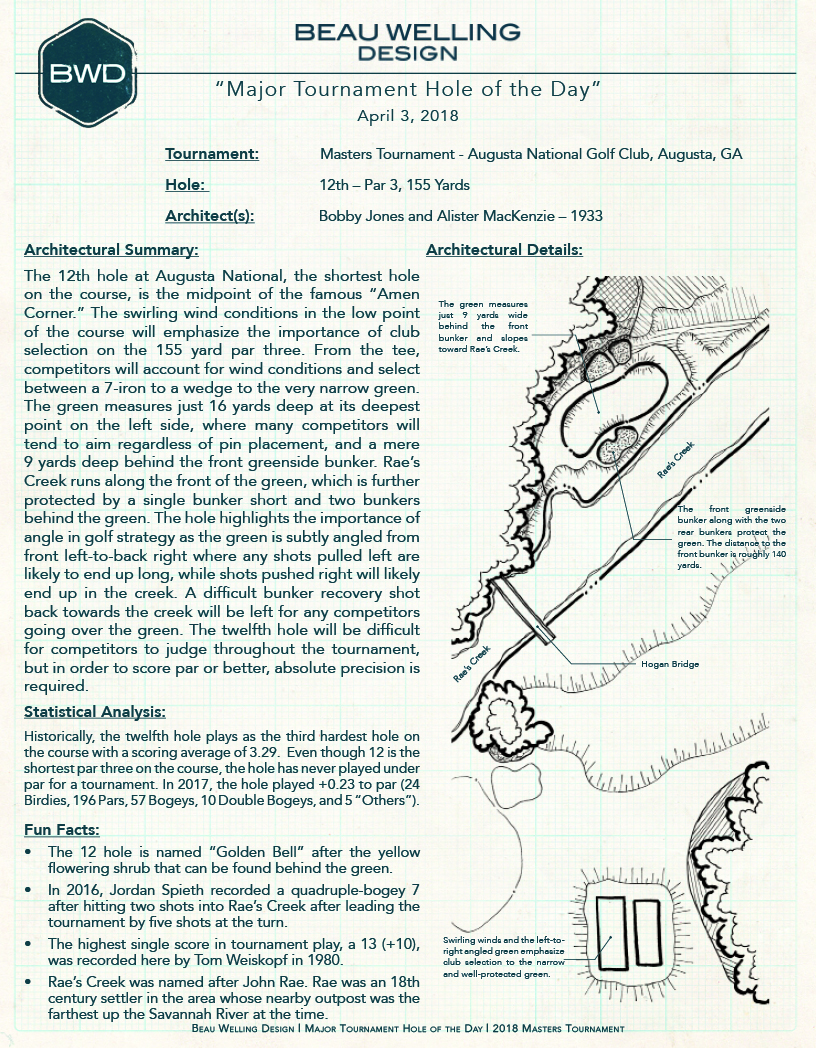
The BWD Major Tournament Hole of the Day: The 12th at Augusta National, Home of the Masters Tournament
Augusta National Golf Club (Augusta, GA)
Golden Bell
No. 12 – Par 3, 155 Yards
Architect(s): Bobby Jones and Alister Mackenzie – 1933

Augusta National Golf Club (Augusta, GA)
Golden Bell
No. 12 – Par 3, 155 Yards
Architect(s): Bobby Jones and Alister Mackenzie – 1933